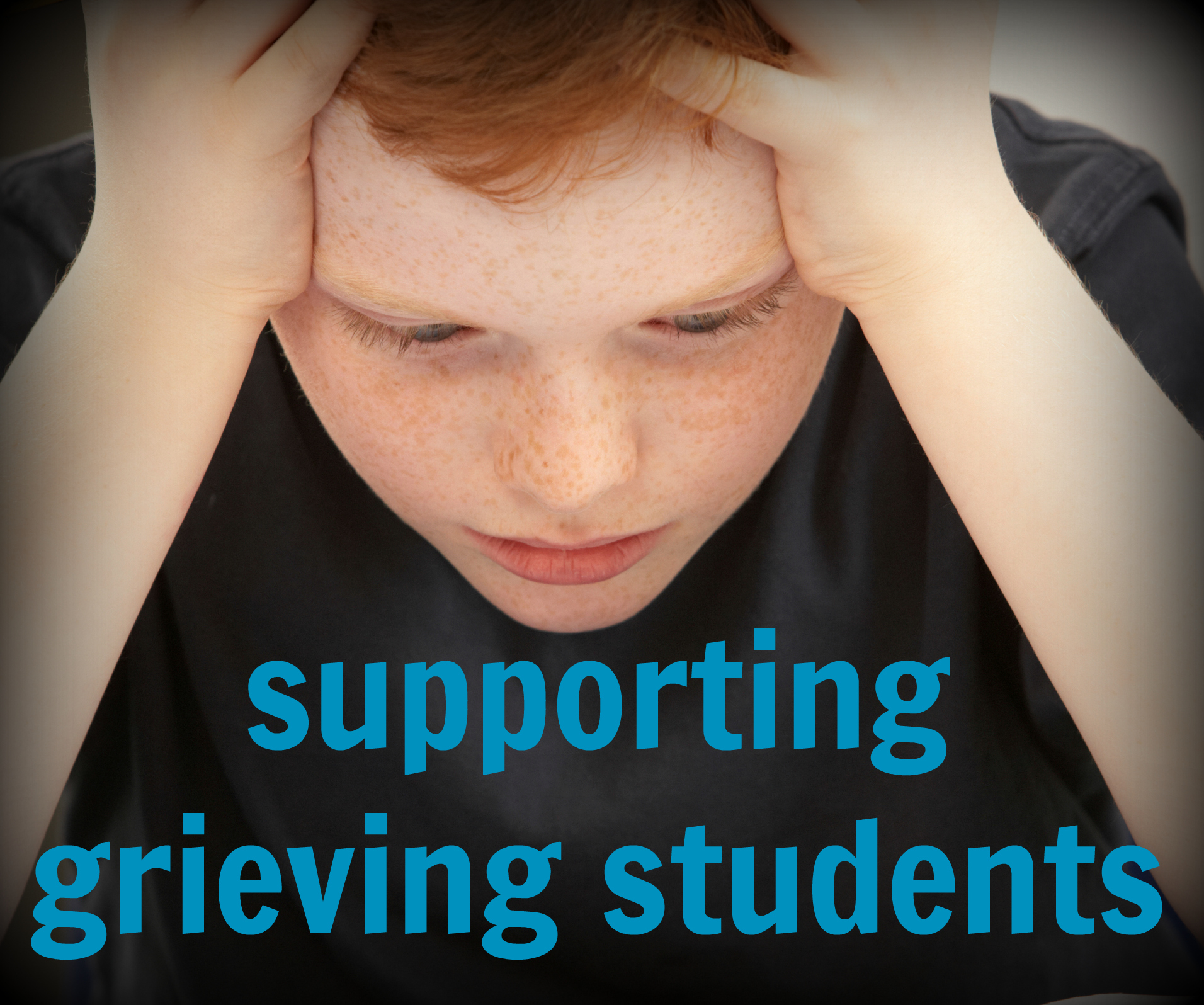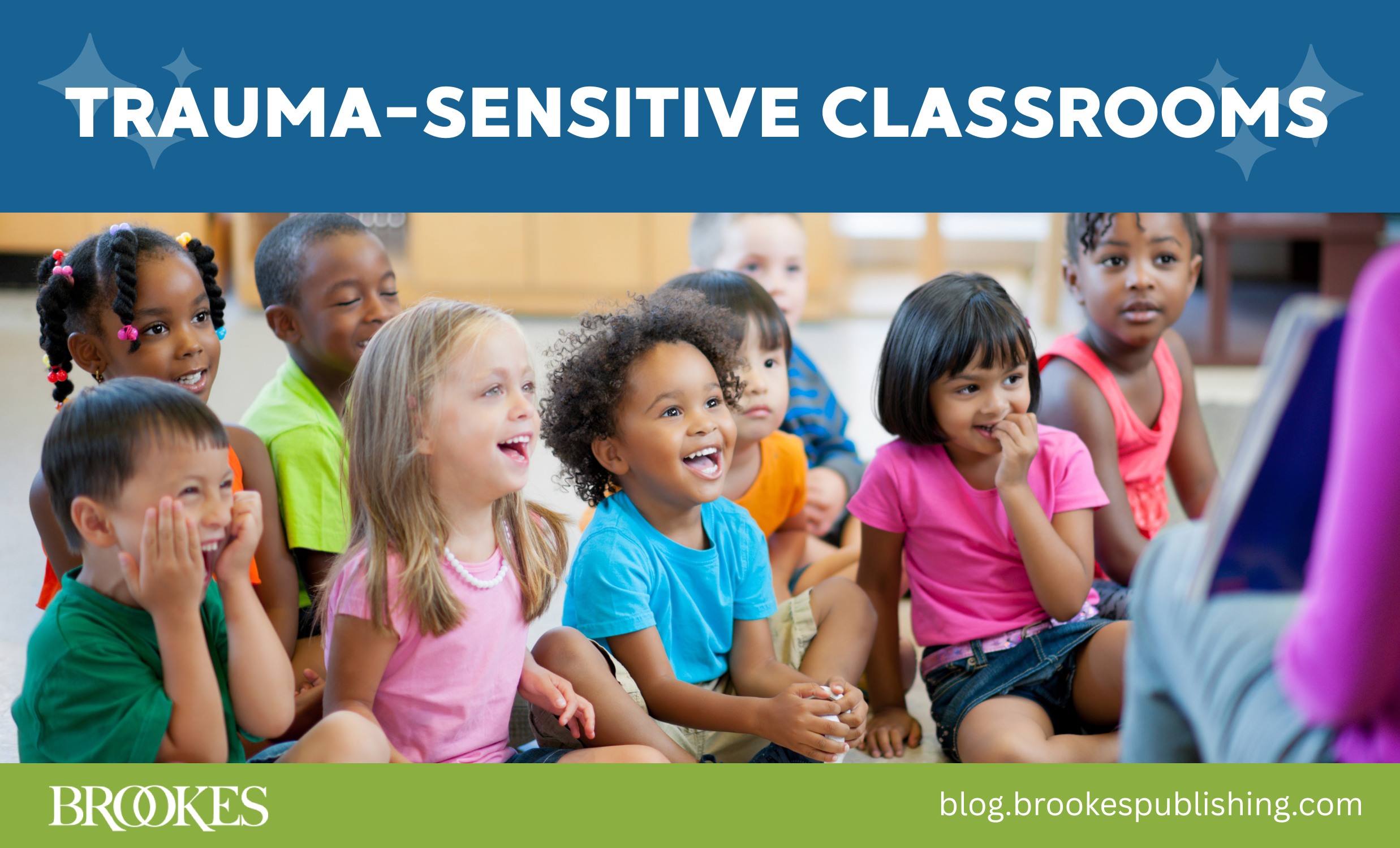Supporting Grieving Students: What to Say, What NOT to Say
May 3, 2016
This post is part of our Social-Emotional Development blog series.
Feelings are complicated, and sorrow is one of the most intense and individualized. Processing grief, expressing emotions, and learning to move forward when experiencing personal loss can seem like insurmountable tasks for anyone to tackle.
Children are particularly vulnerable in these difficult situations. They might find it hard to even wrap their head around the concept of death for the first time, or struggle to communicate the intensity of their sadness, anger, fear, relief, or confusion. Grief can become an overwhelming burden that weighs on school performance, social relationships, and behavior.
Teachers often find themselves on the front line when a child needs sensitive support. How can you know what to say, and what NOT to say, to help a grieving student? Today’s post, excerpted and adapted from The Grieving Student: A Teacher’s Guide, by David Schonfeld & Marcia Quackenbush, offers some thoughtful advice.
What to Do and Say
- Be present and authentic. Children are sensitive to dishonesty, and they can often tell if someone is not being truthful. Speak directly about your own feelings, but avoid manufacturing an emotional response. If you, too, feel distressed by the child’s loss, you might say, “I was sorry to hear about your brother’s death. I feel very sad that he died. I know you must have some feelings about this. Would you like to talk about your brother or tell me what these last few days have been like?” If you didn’t know the person who died, it would not be appropriate to say, “I will miss her, too.” But it would make sense to a child if you said, “I didn’t know your friend, but I can tell she was someone who was very important to you. I feel sad that you had to experience such a loss.”
- Listen more, talk less. It’s fine to share personal feelings and express caring and concern, but it should be kept brief. Keep the focus on the child who is grieving and give them plenty of space and time to talk. Consider saying something like: “I can only imagine how difficult this must be for you,” or “I wonder what this is like for you,” and then offer your time and attention as a good listener.
- Allow emotional expression. Young people going through grief are often told to “be strong,” “toughen up,” or cover up their feelings. A more helpful intervention is to invite them to talk about their emotions as an important part of grieving. This may mean watching someone be angry, selfish, or grief struck. You can open the door to expression by saying: “Most people have strong feelings when something like this happens in their lives. Has that been true for you?” or “I wonder what kind of feelings you’re having about this,” and allow them to feel safe and validated in whatever their response may be.
- Demonstrate empathy. Reflect back what you see your student express, directly or indirectly. It should be done with compassion, sincerity, and without judgment. Offer an opportunity for them to open up by saying something like, “What have the last few days been like for you?”
- Stop harmful reactions when safety is a concern. You may find that some children react to grief with angry outbursts. Expressions such as these are natural and show a willingness to experience some of the deep feelings that accompany profound grief. You can allow grieving children to cry, shout, kick the floor, or throw down a book. However, if that behavior poses a risk to the grieving child or others, you do need to step in to help them stop.
What NOT to Say
It’s hard to know what to say, especially when emotions run high, and sometimes we all make missteps when trying to find the right words in a difficult situation. But, even if said with the best of intentions, the following examples are things you should NOT say to your grieving student:
- “I know exactly what you are going through.” It is not possible to know what another individual is going through, especially in a matter as profound as the loss of a loved one. Even if you have lost family members, close friends, or a spouse, your own experience is as distinct as the children you teach.
- “Both of my parents died when I was your age.” Avoid statements that compete with the child’s experiences of loss. Your student who had one parent or a sibling die may feel their loss is not as meaningful if the focus is shifted to someone who has suffered even more. Referring to another student who lost both parents last year may make children feel their situation is not as significant.
- “My 15-year-old dog died last week. I feel very sad, too.” It is impossible to compare losses, and generally not useful to attempt to do so. As much as possible, keep your focus on the child’s own unique experience and need for support.
- “You’ll need to be strong now for your family. It’s important to get a grip on your feelings.” Grieving children are often told they should not be expressive–that they need to grow up fast, keep it together for their family, manage their feelings, and not feel sorry for themselves. Don’t hold the child back from experiencing the deep feelings they are having, as that is an essential part of coping and adjusting.
- “I know this must be difficult, but it’s important to remember the good things in life as well.” Your desire to cheer up a grieving student is understandable, but it may quiet their expressions of grief. Give them permission to fully experience and express their powerful feelings, to help them process their loss.
- “You must be incredibly angry.” Anger is a natural reaction in the grief process, but it is impossible to know what someone is experiencing at any given time. Avoid projecting feelings onto your student. Suggesting that they ought to feel a certain way is not helpful. Instead, validate the idea that there is no one right way to feel.
The bottom line is to lead with your heart and be genuine, but always be mindful that your words and actions can make a difference and must be chosen carefully. The most important opportunity you can offer grieving children is that of expressing their thoughts and feelings fully. When children feel safe in accepting and expressing the full range of their intense emotions, that time of grieving can ultimately become a time of personal understanding and growth. But, in the moment of dealing with that significant loss, it is truly hard work for a child. You can be a lifeline in their day-to-day struggle of facing and emerging from grief. Be the one who “gets it.” Be the person who offers sensitive support and guidance, who helps the child navigate this difficult time and find their own path to peace.
***
For more insights on talking to students in the wake of loss and tragedy, read this interview with David Schonfeld, co-author of The Grieving Student.
Read more blog posts in our Social-Emotional Development series.




Write a Comment
Your email address will not be published. Required fields are marked *
comments
Mandy says
It's fantastic that you are getting ideas from this article as well as from our dialogue made at this place.
Kira says
My student lost 2 brothers over Christmas break. How do I allow space for the other students to express their grief and also allow space for them to share their positive holiday stories? (Middle School special ed)
jlillis says
Kira, thank you for commenting and reaching out with a question. We're so sorry for your student's loss. You ask a wonderful question, one that deserves a thoughtful and careful answer. We'd like to reach out to one or more of our authors for insights and follow up with another blog post (or an addendum to this one). We realize the information may not be timely enough for your use, since you will likely be back in the classroom by now, but hopefully we can provide a followup soon that will help you and other educators in the future. Thank you!
jlillis says
Hi Kira–just a quick update for you. I posed your question to David Schonfeld, author of The Grieving Student, and here is his response, which I received this morning:
The holidays are a particularly challenging time to cope with the death of someone close, since the expectation for many is that this is time to be with those you care about and to celebrate – both of which are impacted by the death of family members (a free guidance document on Grief Over the Holidays can be found at https://grievingstudents.org/wp-content/uploads/2016/05/Grief-Over-the-Holidays.pdf). Providing an opportunity for students to both share in their positive experiences as well as their losses in a respectful manner is a great way to illustrate the diversity of personal/family experiences that is so characteristic of life and to normalize sharing of personal loss experiences that too often is kept private, isolating children who are grieving. Those interested in more information about how to support grieving students can find a wide range of free video-based modules and print resources on the website of the Coalition to Support Grieving Students at http://www.grievingstudents.org.
Post a Comment